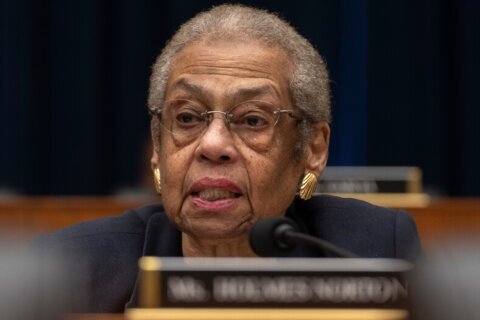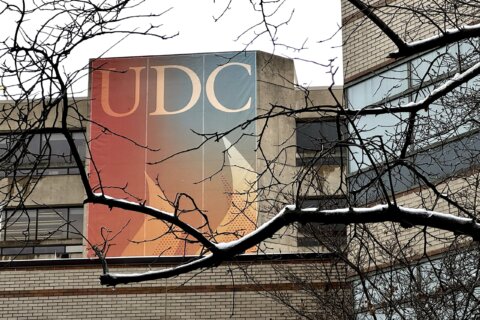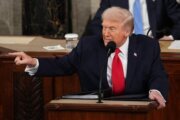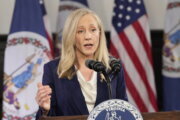If you could spend $1 to help someone else pay off almost $200 of medical debt, would you? If you pay taxes in D.C., you’ve done just that.
The District is using a $225,000 surplus from last year’s budget to buy out around $42 million in medical debt being held by some of the city’s lowest income residents.
“We’re seeing 60,000 residents — that’s more than 10% of our adult population — getting help,” said Ariel Levinson-Waldman, founding president and director-counsel with Tzedek DC, a nonprofit legal aid organization for people in debt.
Tzedek DC helped the District with the process and is also offering resources for residents who were given debt forgiveness to make sure it goes through properly.
Those who qualify for the debt forgiveness include D.C. residents whose income was less than four times the federal poverty level or those whose medical debt was more than 5% of their annual household income.
Almost 60% of recipients of the debt buyout make $25,000 per year or less. Eighty percent of the recipients live in D.C. ZIP codes that are majority Latino or Black communities.
D.C. Deputy Mayor for Health and Human Services Wayne Turnage said this is about more than just paying an old bill.
“This creative use of funds allows us to help tens of thousands of people at once,” Turnage said in a statement. “We know the burden of medical debt can be a barrier from going to the doctor, buying a home or going to college to have a fair shot in their health and overall wellbeing.”
Additionally, he said some who knew they already had medical debt wouldn’t seek medical attention when they needed it because they didn’t want to stack another bill on their already high debt.
“So getting people that fresh start with respect to their medical debt accounts and hopefully increasing access and comfort with seeing the doctor when you need to see the doctor, we think, is a really big, positive step,” Levinson-Waldman said.
So why do medical care providers accept so little for so much debt? Levinson-Waldman said after a period of time, the hospitals will often write off the debt and it will be given a value of maybe half a penny or one penny per dollar. At that time, a government agency, such as the D.C. Council, or a philanthropist, can use each dollar it spends to pay down $100 or more in medical debt, clearing off the credit record of the person who couldn’t pay the bill.
So how will someone know if a debt was paid? Those who received the debt forgiveness will get a letter in the mail from Undue Medical letting them know their debt has been paid off. Levinson-Waldman recommended everyone who receives this letter open it up to make sure all of their information looks correct.
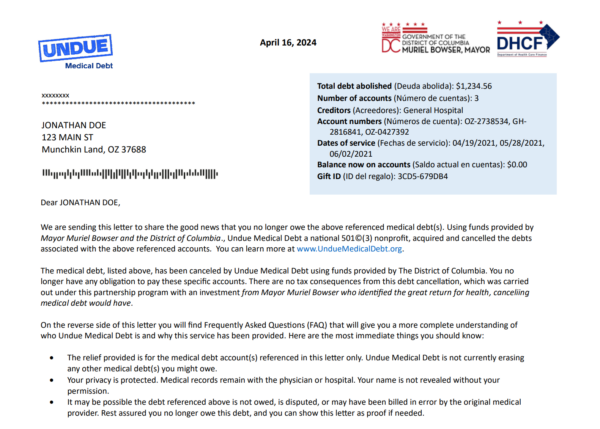
Tzedek DC also has a section on its website Levinson-Waldman recommended everyone use for free help to make sure the debt is removed from their credit record in months to come.
Get breaking news and daily headlines delivered to your email inbox by signing up here.
© 2024 WTOP. All Rights Reserved. This website is not intended for users located within the European Economic Area.


